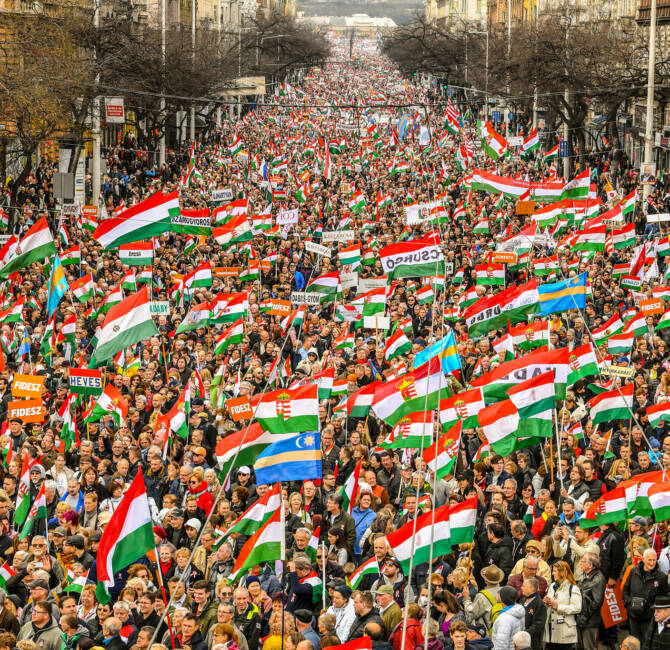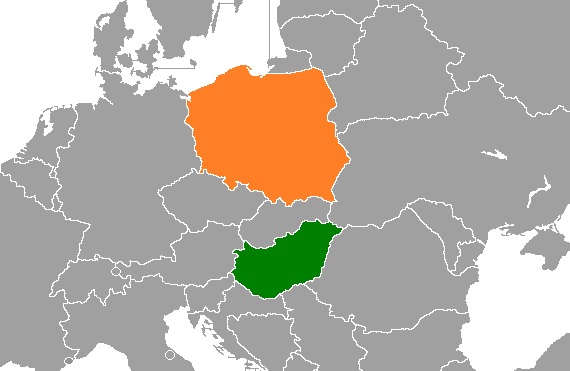European Union – On Wednesday, November 15, the European Parliament adopted a resolution which is the first stage of a sanction procedure against Poland. But there are many voices against this vote, which diverts the powers of the EU institutions for political ends, thus endangering the European Union.
With 432 votes in favor, 142 against and 71 abstentions, the European Parliament voted on Wednesday, November 15, a very critical resolution against Poland and its conservative government. Poland has been questioned by the liberals, the radical left and the europeists. The attack has been launched mainly by MM. Timmermans (Vice-President of the European Commission, European Commissioner for Better Regulation, Inter-Institutional Relations, Rule of Law and Charter of Fundamental), Weber (German MP who chairs the EPP European group) and Verhofstadt (former Belgian Prime Minister and Belgian MEP chairing the ALDE European group).
To justify their calling into questioning Poland, supporters of the resolution declared that the reforms of justice undertaken by the PiS (Party Law and Justice) in power since 2015 threaten the rule of law. But that’s not all: the European Parliament is also attacking Poland’s attitude towards abortion. The European Parliament has called on Poland not to restrict access to eugenic abortions, although the Member States are, according to the treaties in force, free to choose on this subject.
All this is happening in a tense context because of the attacks in unison of the Western media against Poland, systematically relaying from the point of view of an organized opposition and supported in particular by the Soros networks, and connected to the radical left. The case of the Białowieża Forest, where the government is trying to stem an invasion of beetles by cutting down trees in a protected forest, or the patriotic march of November 11, which has been described as a “Nazi march”, or “fascist”, or even “white supremacists”, are the two main subjects on which the Western press concentrated its shooting. Although, many Western MEPs rely on these one-sided and incomplete sources to decide.
The procedure leading up to the triggering of Article 7 of the EU Treaty – suspending the right to vote in the Council – has therefore been initiated.
Germany and France are also considering making access to European funds conditional, and are preparing for the spring 2018 debate on the distribution of funds for 2020-2026. According to Le Monde, one of the scenarios envisaged by Paris and Berlin considers a 30% reduction in the amounts allocated to cohesion policy.
Hardening of the opposition between two blocks
For Polish Ryszard Legutko, PiS MEP, “it is not a matter of rule of law or values, it is a question of power (…). A few hours after the announcement of bills on the [Polish] judicial institution, Mr. Weber already launched with other deputies an anti-Polish campaign. Yet Mr Weber does not speak Polish, he did not know the content of these laws, he had no expertise in hand (…) but he already knew everything and launched this new crusade against the Polish government. Socialists and liberals did the same thing. (…) These are old colonial habits: this Eastern Europe dares to do something, it dares to decide for itself! (…) All the actions of the Commission against Poland are contrary to the law and violate the European treaties. That these actions are approved here in Parliament does not make them any less contrary to the law. You have the majority here, you can vote everything. You can even vote that two plus two equal five!”
In his open letter to Timmermans, Marek Jurek pointed out these abuses by senior EU officials and warned against the danger of these abuses of power. Called by our correspondent in Poland Olivier Bault on behalf of Réinformation TV, Marek Jurek added that “if a majority of national governments choose, within the Council, to turn a blind eye to the abuses of the Commission, it means that we are trying to radically move away from the rule of law at the level of the European institutions. (…) It makes it easy for some countries to see the Commission pacify the states of Central and Eastern Europe.”
Czechia announced through its Secretary of State for European Affairs Aleš Chmelař on September 7 that it was not in favor of applying Article 7 against Poland. According to Mr Chmelař, the biding of the European institutions to some opponents of the Polish justice reform, which should remain an internal issue, he recalled, would be “unfortunate and counterproductive, creating an impression of paternalistic treatment.”
On the Hungarian side, Prime Minister Viktor Orbán has been approved by the government to apply Hungary’s veto if Article 7 were to be triggered against Poland, breaking therefore the announced strategy of Mr Timmermans. Hungarian Deputy Prime Minister Zsolt Semjén described Wednesday’s resolution as “shameful and scandalous.”
In conclusion of the debate on Poland before the vote, while the hemicycle was almost empty, Mr Legutko added lapidarily to Mr Timmermans that “it does not harm Poland, it hurts the European Union. If we were to gather all the anti-EU rants heard in this chamber, they were less detrimental to the image of the EU than your intervention. To destroy the image of the EU, you have done more than Marine Le Pen and Nigel Farage taken together.”




